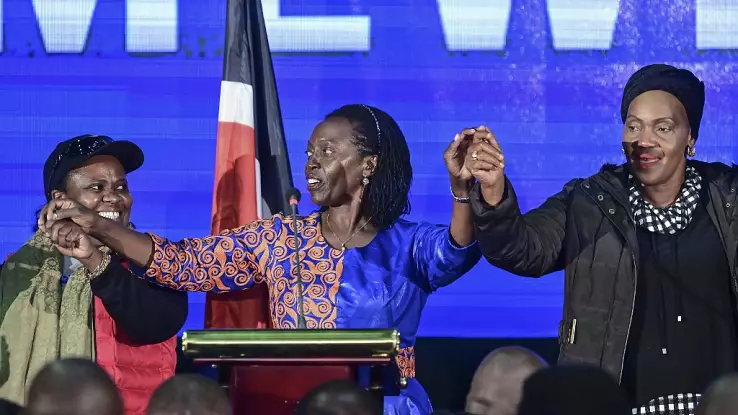Kenyan polls: women chalk historic feet
Kenyan women made historic breakthrough in the August 9 elections, winning 26 seats in parliament, a further step towards gender parity.
The campaign had already been a typical, with a record number of women candidates, including three who were running for the four presidential candidates.

Last Tuesday, 22.1 million voters had to choose their new president, as well as 290 deputies, 47 senators, 47 county governors and 1,450 members of county assemblies. Of the 16,100 candidates, Kenyans elected 26 female MPs, up from 23 in 2017, seven female governors, up from three in 2017, and three female senators.
Women won in the politically influential counties of Kirinyaga and Machakos as well as Meru, where former women’s representative Kawira Mwangaza ran as an independent and beat her male competitors. In the Rift Valley town of Nakuru, women won eight positions, including a governor and a senator.
“Now sit back and see what women can do when they are in office,” said Tabitha Karanja, a businesswoman who runs Kenya’s second largest brewery (Keroche Breweries Ltd) and was recently elected as a senator on the ticket of William Ruto’s United Democratic Alliance (UDA).
Since the election of the first woman to Parliament in 1969, the political landscape in Kenya has remained predominantly male and the implementation of parity patchy.
The 2010 Constitution requires a two-thirds/one-third gender balance in Parliament. But the two male-dominated chambers have never passed a law to that effect, despite legal challenges to force their hand.
The number of elected women had already risen in 2017 to about 20% of the National Assembly. However, Kenya is still far behind some of its neighbours, such as Rwanda, in terms of parity. The political journey of Kenyan women is often fraught with difficulties, and that of the 2022 candidates was no exception.
The campaign “was marred by violence against women” despite warnings and promises by the government to tackle the problem, according to the International Federation for Human Rights and the NGO Kenya Human Rights Commission.
However, “the emergence of more women candidates confirms that these primitive tactics are not working as well as they did in the past,” noted the influential Kenyan daily Daily Nation in its 5 August editorial.






















































